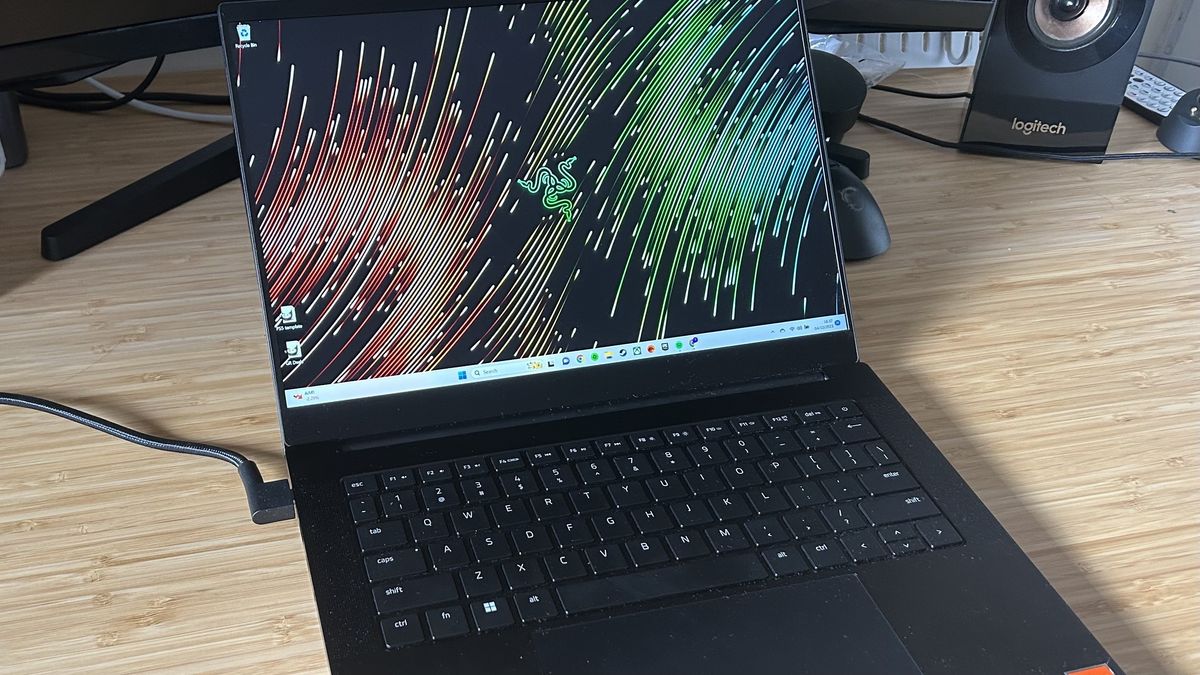12DOVE Verdict
The Razer Blade 14 is a dream, but due to its inflated price it will likely remain that way for the majority of players. With its super versatile design, impressive performance, and slick typing experience it's an absolute beauty - possibly the best way to play on the go. At some $800 more than comparable competition, though it's difficult to justify.
Pros
- +
Super slimline, easily portable design
- +
Slick aesthetic
- +
Impressive performance overall
- +
High refresh rate display
- +
Satisfying, fast keyboard
Cons
- -
Touchpad can be too large for lap use
- -
Configurations max out at RTX 4070
- -
Particularly expensive against competition
Why you can trust 12DOVE
The Razer Blade 14 is a formidable opponent, yet it's seen fierce competition from the Asus ROG Zephyrus G14 in recent years. 2023 marks a new battle, though, with RTX 40-Series components squeezing into ultra-portable chassis' on both sides of the arena and AMD's 7940HS CPU hitting the mobile mainstream.
At first glance, the Blade 14 isn't doing anything it hasn't done before. This is still a solid black brick of aluminum running the latest games surprisingly well considering its smaller form factor. With a higher price point this time around ($2,399.99 for the base RTX 4060 model) and a new Mercury Silver colorway on the shelves, there's more going on here than meets the eye.
I took the Blade 14 for a spin over the course of a month, to see how it shakes the world of the best gaming laptops in 2023.
| Specs | Tested | Also Available |
|---|---|---|
| Price | $2,699.99 | $2,399.99 - $2,799.99 |
| Display | 14-inch QHD+ @ 240Hz | - |
| Processor | AMD Ryzen 9 7940HS | - |
| GPU | RTX 4070 | RTX 4060 |
| RAM | 16GB | 32GB |
| Storage | 1TB | - |
| Connectivity | WiFi 6E, Bluetooth 5.2 | - |
| Ports | 2x USB 3.2 Gen 2 Type-A, 2x USB4 Type-C Ports (Power Delivery and DisplayPort 1.4), HDMI 2.1, power, 3.5mm audio | - |
| Dimensions | 17.99 mm x 228 mm x 310.7 mm | - |
| Weight | 1.84 kg | - |
Design
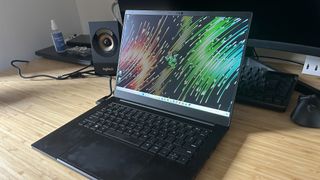
Razer isn't throwing out the rulebook here. The Blade 14 carries the same aesthetic all of the brand's laptops have for years now. A sleek black slab of CNC aluminum sits on the desk before me, and it looks beautiful. Coming off the back of 18-inch desk hogs, it's refreshing to sidle a gaming laptop into place and have it blend seamlessly into the background. Razer's laptop designs have always been subtle, but in this 14-inch form factor that less is more philosophy sings.
This thing is dense, so while it's ever so slightly thinner than its Asus ROG Zephyrus G14 counterpart it's noticeably heavier. In practice, that didn't mean much. It was still just as easy to transport it in a backpack or tuck it under an arm while moving around the house. If you're a stickler, though, it's worth noting that this 2023 model is ever so slightly heavier and thicker than last year's generation - though the 68g and 0.11 inch difference is negligible considering the boost in power under the hood.
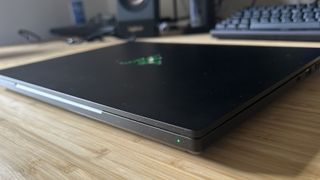
I praised the G14 for its subtle aesthetic, and Razer takes that to a whole new level. The only indication that this is a gaming device is the Razer logo slapped in the middle of the lid - elsewhere you'll find matte black running throughout.
Everything feels as sturdy and durable as you would expect from a high end laptop. Yes, there's a little wobble to the lid as it's opened but the hinge feels taut enough to withstand years of use and there's no flex to the main deck. I did miss the lifted hinge design of the G14 (which raises the back of the keyboard as the lid opens) compared to the Blade's more traditional flat lower portion, and it did make longer typing sessions from a desk feel a little less comfortable.
Inside, you'll find a massive touchpad which I did find got in the way of typing as my palm brushed the surface (especially when sitting with the device on my lap), and a spacious keyboard running nearly the full length of the chassis - save for the almost imperceptible speaker grills on either side. Volume and media controls aren't separate from the main deck, though, and are instead assigned to the function row, which is more difficult to quickly tap at than in Asus's delivery.
Features
One of the most noticeable changes to the Razer Blade 14 for 2023 is that 16:10 screen. Everyone's doing it nowadays, stretching their 16:9 displays up a little higher to produce more screen real estate while keeping a similar form factor. The Blade 14 benefits more from this development than most larger machines - a 14-inch form factor always runs the risk of feeling compact, so the move opens things up to a far more immersive experience without increasing the overall footprint.
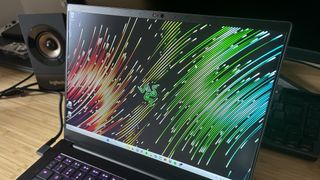
Crucially in the race between Razer and the Asus ROG Zephyrus G14, the Blade packs a 240Hz refresh rate. That's significantly higher than the Zephyrus's 165Hz and translates to super fluid on-screen motion, even if framerates aren't quite there to take advantage of it yet (more on that later). Even if it's slightly overkill for the juice under the hood, that speedy screen manages to keep everything running silky smooth, with a 3ms response time and AMD FreeSync Premium packaged in as well. Colors are vivid and vibrant - slightly more accurate than the Zephyrus as well - and offer excellent contrast and detailing even in darker scenes.
The components on offer sit in the middle to top end of AMD and Nvidia's offerings, with the Ryzen 9 7940HS packing octa-core performance at 5.2GHz boost, and the choice between an RTX 4060 or RTX 4070 graphics card. There's slim choice when it comes to speccing your own model, though. The Razer Blade 14 doesn't manage to sneak into the realm of the RTX 4080 or RTX 4090 where competitors are putting their high-end 14-inch machines. That's frustrating considering the already high starting price, there's no real budget or high-end option here - just a pretty expensive mid-range. If you're between certain specs, it's also worth noting that the Blade 14 also allows for user upgradeable RAM further down the line as well.
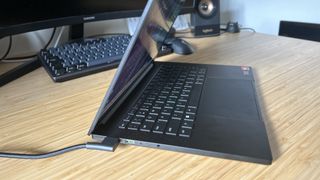
Underneath that display you'll find a solid keyboard offering. It's a soft-touch, light actuation affair without the tactility you'd often find in an Alienware laptop. However, it's particularly speedy to type across and balances its keyspacing nicely for solid accuracy. You're getting per-key RGB lighting, with an astounding level of brightness behind each cap (and 100 different levels to choose from) as well. The only obstacle I ran into with the keyboard was with those arrow keys. Razer has opted to shorten the height of its up and down keys, while keeping left and right full sized. It feels strange under hand and isn't particularly intuitive or accurate during more frantic gameplay moments.
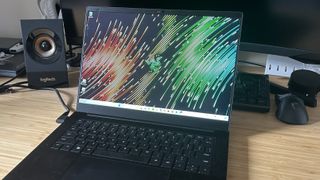
If you'd prefer to plug in one of the best gaming keyboards, you've got plenty of choice to do so. Too often I see these smaller laptops dropping ports to keep the form factor light and nimble, but I was glad to find a solid supply of USB-C and USB-A ports adorning both sides, with plenty of room to navigate around awkwardly shaped dongles as well. Those USB Type-C ports are Thunderbolt 4 compatible as well, though I was never able to draw enough power through them to actually run well. While I don't personally use them, this package would have been rounded out with an ethernet option - especially considering far cheaper, and even sometimes smaller, machines can connect via a wired internet connection.
All of that is topped off with a feature very few gaming laptops are including in their spec lists, but could turn the tide for anyone after a machine for both work and play. The 1080p webcam up top is clear, bright, and sharp, offering surprisingly little grain in less favorable lighting conditions and excellent color overall. It might not be a game changer for sole gaming use, but it's certainly a big gun if you need an all in one device.
Performance
Time Spy: 11,271
Fire Strike: 26,021
PC Mark 10: 7,534
I tested an RTX 4070 configuration of the Razer Blade 14, with an AMD Ryzen 9 7940HS processor at the helm. With a graphics card two rungs below that of the Asus ROG Zephyrus G14 (RTX 4090) I had on the testing bench over the summer, it's easy to see why the Blade 14 didn't spit out the same kinds of framerates and benchmarks. I wasn't expecting it to be so close, though.
In Shadow of the Tomb Raider, the Blade 14 was only ever 10 framerates or so behind the 4090 in the G14, putting on a show that would make the previous generation weep. Razer often falls down at this hurdle, packing all its tech into impossibly thin devices and leaving the framerates to suffer for it - it's what we saw with the Blade 15 last year. There's a nice balance this time around.
It's disappointing that I wasn't able to draw min 60fps in Ultra 1600p settings on more demanding titles like Total War: Three Kingdoms, but this was an outlier in my tests. Scoring 92fps at these Ultra settings in Hitman 3 certainly isn't anything to sniff at, and it's darn impressive in this ultraslim form factor.
It's frustrating that Razer couldn't find a way to cram higher end graphics cards into this chassis, because the power handling for the 4070 is particularly impressive. As it stands, you won't be able to move past these rates simply by throwing money at your spec - for future-proof Ultra performance you'll need to be looking elsewhere.
However, the vast majority of players will be very happy with this smooth gameplay. I never ran into stuttering during my time blasting through Starfield or Baldur's Gate 3, and temperatures remained remarkably controllable as well - impressive considering even the best Razer laptops can struggle to stay cool.
| Row 0 - Cell 0 | 1080p | 1600p |
| Shadow of the Tomb Raider | High: 154fps, Highest: 147fps | High: 125fps, Highest: 114fps |
| Total War: Three Kingdoms | High: 121fps, Ultra: 87fps | High: 67fps, Ultra: 49fps |
| Hitman 3 | High: 117fps, Ultra: 111fps | High: 96fps, Ultra: 92fps |
| Rainbow Six Extraction | High: 163fps, Ultra: 137fps | High: 123fps, Ultra: 96fps |
Should you buy the Razer Blade 14
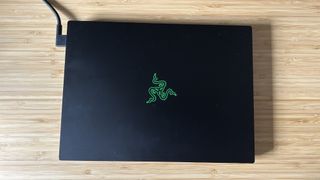
I've thoroughly enjoyed my time with the Razer Blade 14, from its work / play versatility to its subtle design and compact footprint. It's an excellent device, packed with the power to take on high-end games and the screen to make them shine as bright as possible. Unfortunately, you can't have it all though. The Blade 14's price point is its downfall and while we've come to accept the Razer tax, the difference in cost when compared to its competitors feels more egregious than in years past. It's a fantastic machine, but it's not going to be right for most players simply because of the extra $850 you're spending over Asus's model. That shadow looms large. Even though you're getting a faster screen and more streamlined design, the Zephyrus is going to win on value every time.
| Specs | Razer Blade 14 | Asus ROG Zephyrus G14 |
|---|---|---|
| Price | $2,699.99 | $1,849.99 |
| Display | 14-inch QHD+ @ 240Hz | 14-inch QHD+ Mini LED @ 165Hz |
| Processor | AMD Ryzen 9 7940HS | AMD Ryzen 9 7940HS |
| GPU | RTX 4070 | RTX 4070 |
| RAM | 16GB | 16GB |
| Storage | 1TB | 1TB |
| Connectivity | WiFi 6E, Bluetooth 5.2 | WiFi 6E, Bluetooth 5.3 |
| Ports | 2x USB 3.2 Gen 2 Type-A, 2x USB4 Type-C Ports (Power Delivery and DisplayPort 1.4), HDMI 2.1, power, 3.5mm audio | 1x 3.5mm audio, 1x HDMI 2.1, 1x USB-C 3.2 Gen 2, 2x USB-A 3.2 Gen 2, 1x USB-C 4 (Display Port + PD), 1x Micro SD card reader |
| Dimensions | 17.99 mm x 228 mm x 310.7 mm | 31.2 x 22.7 x 2.05cm |
| Weight | 1.84 kg | 1.72Kg |
How we tested the Razer Blade 14
I used the Razer Blade 14 every day for work, play, and everything in between - over the course of a month. This machine went everywhere with me, from cross-country trips to coffee shop stops. In that time, I primarily played Starfield and Baldur's Gate 3, both running natively on the laptop and connected to an external display. I also tested using in-game benchmark tools across Shadow of the Tomb Raider, Total War: Three Kingdoms, Hitman 3, and Rainbow Six Extraction. For more information on how we test gaming laptops, check out the full 12DOVE Hardware Policy.
We're also rounding up all the best Asus gaming laptops on the market, as well as the best gaming handhelds for more portable performance and the best gaming PCs for something more desk-bound.

Managing Editor of Hardware at 12DOVE, I originally landed in hardware at our sister site TechRadar before moving over to GamesRadar. In between, I've written for Tom’s Guide, Wireframe, The Indie Game Website and That Video Game Blog, covering everything from the PS5 launch to the Apple Pencil. Now, i'm focused on Nintendo Switch, gaming laptops (and the keyboards, headsets and mice that come with them), PS5, and trying to find the perfect projector.
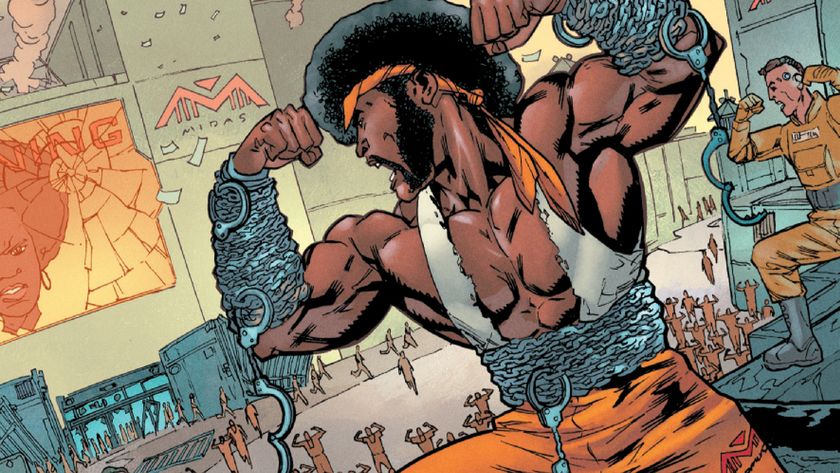
Ultimates #9 introduces the new Ultimate Luke Cage and Danny Rand, who have been fighting the Maker in the background all along

Harrison Ford defends Indiana Jones and the Dial of Destiny in the most Harrison Ford way: "S*** happens"
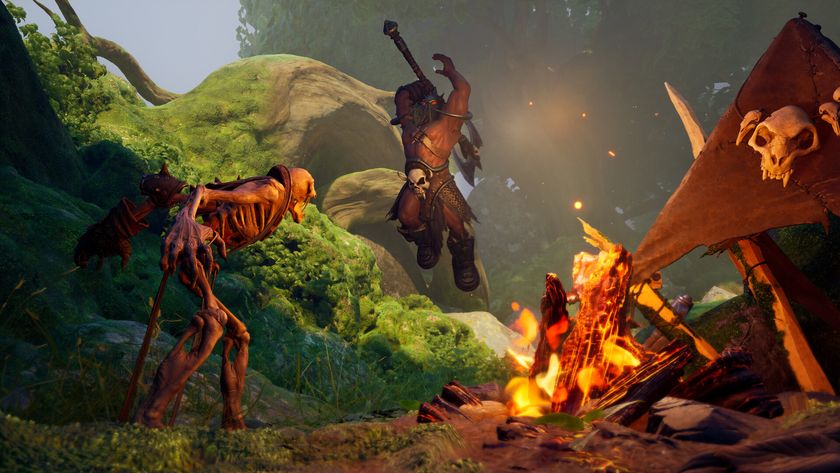
AAA games may never die, but ex-WoW veteran predicts a rise in AA games like his new mini MMO: "Most AAA devs who have joined our team really do not want to go back"
